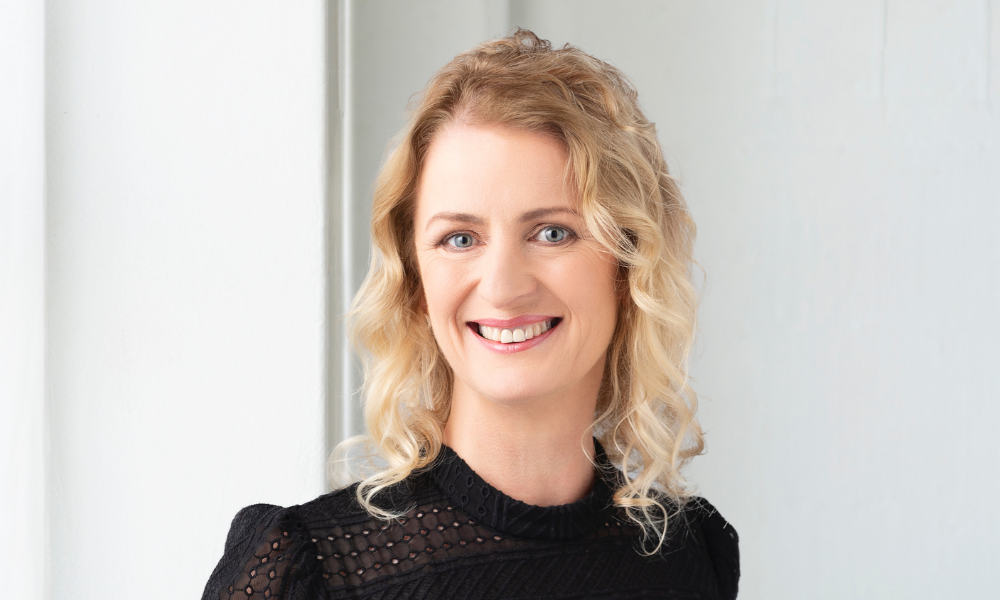"We can do those big loan sizes in 24 hours."

Small businesses in New Zealand are increasingly turning to non-banks for their financial needs, Adrienne Begbie (pictured), managing director at Prospa New Zealand, told New Zealand Adviser.
It's not hard to see why. Non-banks offer borrowers faster service, customized solutions and flexible lending criteria, Begbie said.
"This is what businesses need. They need [loans] fast," Begbie said. "Say someone's got a business; they're running a cafe. They're turning over $20,000 a month. Then their oven breaks and they need to replace it. They need 20 grand and they can't wait six weeks for [a traditional bank loan], because if their oven breaks down, then they can't run their business. And the business doesn't want to have to go and put the expenses on their mortgage, or put it on the credit card, so they ring us. [The borrower] has property; it's tied up in trusts. At a bank, it'll take six to eight weeks to turn around, if you want to go and leverage the equity in your property. Whereas we can do those big loan sizes in 24 hours; that's why they will come to us.
"In New Zealand, banks do lend to businesses, but really it's based on the security," she said. "So they lend against the house. It's house lending. It's not business lending. It's not looking at the health of the business. It's not a fit-for-purpose product, per se. So that's where Prospa was born."
Prospa was founded in Australia 12 years ago. The New Zealand version popped up six years later. At the same time, New Zealand's non-banking sector was growing rapidly. According to market research firm IBISWorld, lending by non-banks grew at a compound annual growth rate of about 6.7% between 2019 and 2024.
The faster turnaround times also help small businesses focus on their own firm, Begbie said.
"[The borrowers] are very busy in their own right, so they can't do heaps and heaps of paperwork and spend a lot of time doing all of that," she said. "So they'll call us. And when they're dealing with [non-bank] businesses like ours, it's quick; it's fast."
How it works
Prospa New Zealand offers loans to small and medium-sized firms that have been established for at least six months.
"We don't do startups," Begbie said.
Loan amounts can be anywhere between $5,000 and $500,000, and approvals can be in 24 hours.
"Really, it's like cash-flow lending, " Begbie said. "We replace their cash flow. We don't do the deposit for property. For example, [a business] might have used all of their business cash flow to put down a deposit, and then they want to replace that. So [with our loan] they're putting the cash flow back into the business to be able to pay staff, or to pay for stock, or stuff like that. So say someone stripped out 100 grand because they need the deposit now. They'll go and do that, and then they can replace it with our lending.
"Then we do all the bank scraping," she said. "We look at the bank account, see what's actually going on, what their turnover is, and then we can lend them that money within the day. We do some same-day lending up to $150,000, but we go up to $500,000 [over time]."
Prospa also offers a line-of-credit product.
"Which is hugely popular, because someone will come get a line of credit for 100 grand, but then they'll only draw 10 or 20 [grand], so then it's being used for the business and when they need it. So our product is different from what the banks can and will do," Begbie said.
The line of credit is essentially access to between $2,000 and $500,000 with unlimited drawdowns for two years.
Working with advisers
Begbie said about 70% of Prospa's business comes through advisers, hence the reason the adviser-lender relationship is pivotal. She added that advisers who have the knowledge of non-bank lending are able to provide more options to their clients.
"They are true advisors that are working with their customers. They're not just doing the mortgage. They're advising them on their overall [financial] health and wellbeing, the insurance" Begbie said. "And they'll look at their business, a small business owner, they'll go, 'How's your business going? What would you do with $40,000 in your business tomorrow? How are you funding your business? Are you doing it on your credit card? Your house?'
"In general, they'll have that wider discussion to see how the business is running, to see whether they can refer deals to us. They identify the opportunity and send it through to us," she said.



